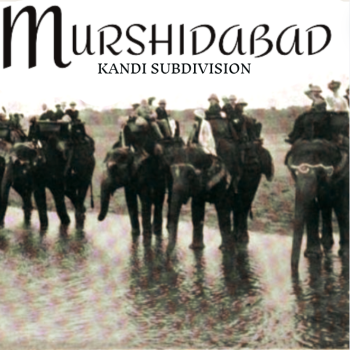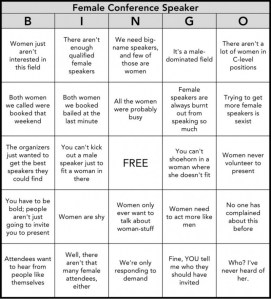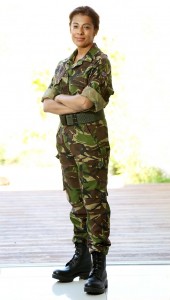Spiced Spare Ribs! A Woman’s Question Time was a refreshing hour-long panel/audience discussion that touched on a lot of issues affecting British Muslims, Western Muslims as well as Muslims from around the globe. The women on the panel were four extremely articulate women: Catherine Heseltine (seated on the far left), Khola Hassan (seated next to Catherine), Fatima Zohra (seated on the far right) and Humera Khan (seated next to Fatima). You can view a video of the panel here.
When I first saw the advertisement for this event, I have to admit that I was disappointed with the title of the event “Spiced Spare Ribs”. I wondered why an event focusing on Muslim women had such a stereotypical name. This made me wonder what the actual panel discussion was going to be like.

However, once I started watching the actual video, I realized that the advertisement was in fact quite deceiving. Two of the panelists as well as moderator Fareena Alam critiqued it, saying that the woman in the poster “doesn’t represent all of us” and that she was a “stereotype that excludes a whole continent of African women who are never seen as Muslim women when in fact we are.” Humera critiqued it the most saying:
The title is awful and flippant. Why is that when we deal with women’s issues we make a joke about it? If you limit the image to one kind of image then by definition you’re excluding other kinds of people.
I was especially happy with the last sentence in Humera’s quote because it definitely gets to heart of why images can be troubling and why some of us, including me, do point out when an image is being presented that only presents one picture of Muslims or Muslim women. That fact the women critiqued the poster is a testament to how open the entire event was.
After discussing the poster, the panel discussed a wide range of issues that affect Muslims in Britain (which is where the panel took place), as well as Muslims in other parts of the Western world. One issue that was discussed in detail was the issue of platonic relationships with the opposite sex and intimate relationships. This issue was discussed in a frank and open way, with both the panelists and audience challenging norms, discussing shortcomings, and offering solutions. One statement that stuck out for in this segment was Humera’s statement that “men and women must work together for the public good.”
Humera put the focus on men and women and pointed out that men are needed just as much as women for social change. Throughout the discussion, Humera would focus on the role and issues of men as well as women. This could be reflective of her work on Muslim boys and men and how they deal with identity and alienation, but I think it was still necessary. Too often when we discuss gender issues, especially among Muslims, the focus turns on women and very little thought is given to how Muslim men deal with gender issues.
On the issue of balancing work and the family, the focus was not entirely on women either. Again, I found this refreshing, since men are as much a part of the home as women. Khola asserted that the Qur’an does not have one paradigm for the family. I thought that was especially important because a lot of Muslim women are made to feel like “bad Muslimahs” when they work outside the home or are the main breadwinners for their homes. It also challenges the view that men cannot be the primary caregiver for children and must be the breadwinner. Another important point in this portion of the discussion was Humera’s remark that “we respect our mothers but not motherhood”, as well as Khola’s remark that ‘Aisha was not a mother. In all of these statements, there is a challenge to patriarchal ideals that a woman’s most honored role and only role is as a mother and wife.
While I didn’t agree with everything that was said by the panel, I found the overal discussion to be extremely engaging, as well as frank and open. People were free to express whatever opinions they had no matter how conservative or liberal without being attacked or belittled. We need more dialogues like this among Muslims and we need more open discussion about women, men and gender among Muslims.















